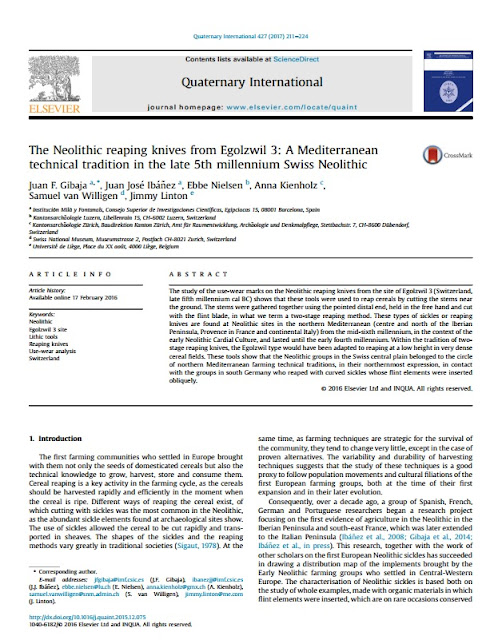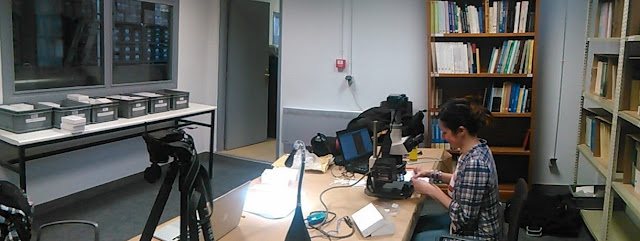This is the blog of the project "Neo-Innova: The diffusion of Neolithic in the Central-Western Mediterranean: agriculture, technological innovations and radiocarbon dating" (HAR2016-75201-P). This research project focuses on one of the main turning points of human history: the diffusion of Neolithic. Even if it is well established that the Near East was the first focus of the invention of farming, around X-IX milenium BC, the mechanisms and the paths of its spreading in the rest of the Mediterranean are yet to be unfolded. During the last decades, the origin of European Neolithic has been explained as result of a diffusion process through two main axes: a Northern one, crossing central Europe, and a Southern one along the Mediterranean coasts. The current project is aimed to analyse the process of Neolithic diffusion through the Central-Western Mediterranean through analysis of the techniques and tools associated with the crop-harvesting and -processing tools. Analysis of those tools has to be supported by an extensive program of radiocarbon dating and a cross-analysis of the crop-harvesting/14C with the information proceeding from the environmental/ecological, the technological and the cereals consumed.
Pages
Saturday, 18 March 2017
Early Farming Communities in Thessaly: work in progress
Friday, 17 March 2017
The Sickles of Nerja Cave (Málaga, Spain)
The results obtained complete the information we currently have from the south of the Iberian Peninsula.
This work is inserted in the studies that are being carried out in the cave under the direction of José Luis Sanchidrián and Luis Efrén Fernández.
We thank them for their kindness and collaboration. As well as to Mari Angeles Medina, Cristina, Yolanda, Juan Bautista Salado and all the friends who work in the cave and the museum of Nerja.
Thursday, 9 March 2017
New Paper: The Sickles of Egolzwil 3 (Switzerland)
Thank you all authors!!!!
The Neolithic reaping knives from Egolzwil 3: A Mediterranean technical tradition in the late 5th millennium Swiss Neolithic.
Working in Pamplona (Navarra): neolithic site of Cascajos
A previous work by Juan José Ibáñez and Jesus Emilio González, on a sample of these deposits, arrived at the same conclusions. Now we have reviewed all the material.
Millions of thanks to all the people involved.














